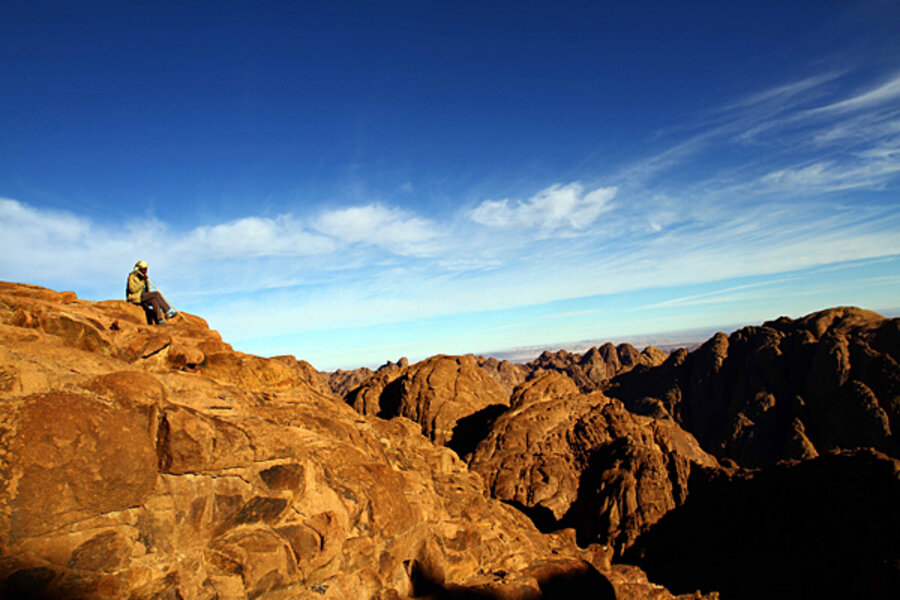Israeli archaeologist finds common ground underneath Sinai's shifting sands
Loading...
| Jerusalem
When Avner Goren walks in your door, thousands of years of history come sweeping in like the desert sands.
After Israel captured the Sinai peninsula from Egypt in the 1967 war, Dr. Goren was appointed chief archaeologist of Israel. He moved his young family to the rugged mountainous region and began getting to know the local Bedouin. By the time he left in 1982, after Egypt and Israel made peace, he had learned Arabic and become thoroughly integrated into the Bedouin culture.
“The people really opened their hearts,” says Goren, a world-renowned archaeologist. “When I’m not careful, I speak about them as ‘my tribe.’ ”
During his time there, he and other archaeologists from around the world uncovered the civilization of Nawamis, the forefathers of the Bedouin, who established homes in the Sinai in the 4th millennium B.C. – before the pyramids were built. Some of the buildings still had roofs on them, making them perhaps the oldest roofs ever found.
“That was a new thing and even a new, I would say, branch of desert archaeology that forced us to develop completely new tools,” says Goren.
When Israel made peace with Egypt, however, he had to oversee the transfer to Egypt of all the archaeological artifacts uncovered in the Sinai during Israel’s occupation.
“I have a lot of personal attachment to the finds but … I do believe it was the right thing to do,” he says.
Today, however, he’s worried that some of those artifacts, which he spent more than a year cataloging before sending back to Egypt, may have been stolen in a wave of looting since former President Hosni Mubarak was ousted in 2011.
"My understanding is that the Sinai things that Israeli returned to Egypt were returned to Qantara,” says Goren, referring to one of the targets of the looting. “A lot of museums and other places, including the storerooms of the Antiquity Authority in Qantara, have been looted."
Back in Jerusalem, he is applying his understanding of Arab culture, gained during his years in the Sinai, to help promote various coexistence projects in Israel. Among other things, he is the Israeli representative for the Abraham Path Initiative, which aims to unite people of all faiths around the experiences and example of the patriarch.
“It takes for me tons of energy to help people understand how to express themselves,” he says, but he is undaunted. “I do believe very strongly that naiveté is a very good and important tool to accomplish dreams.”







